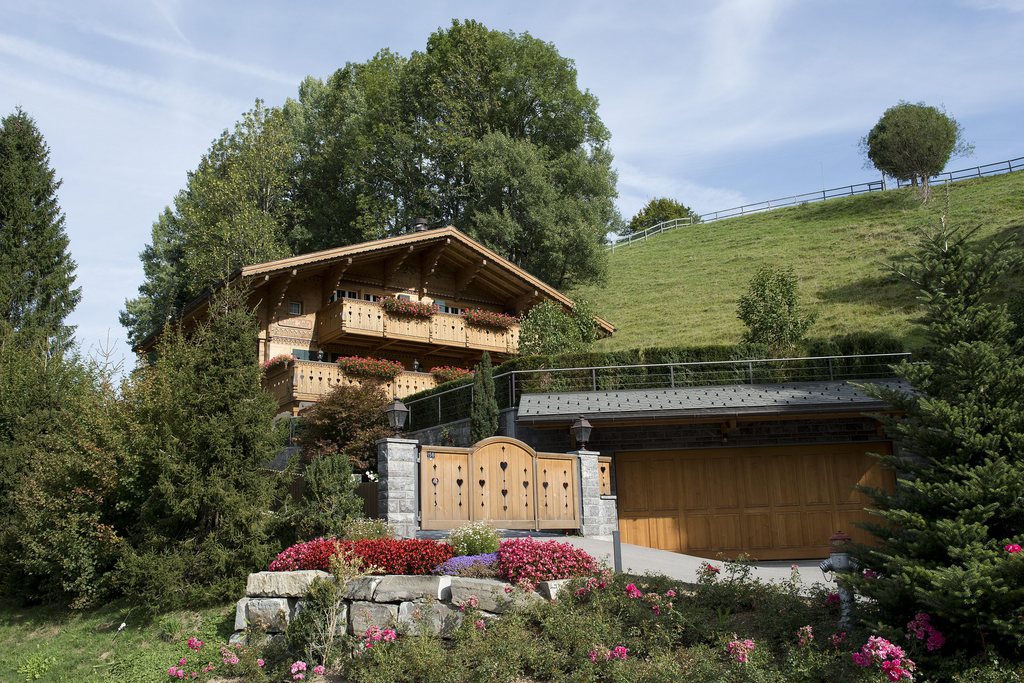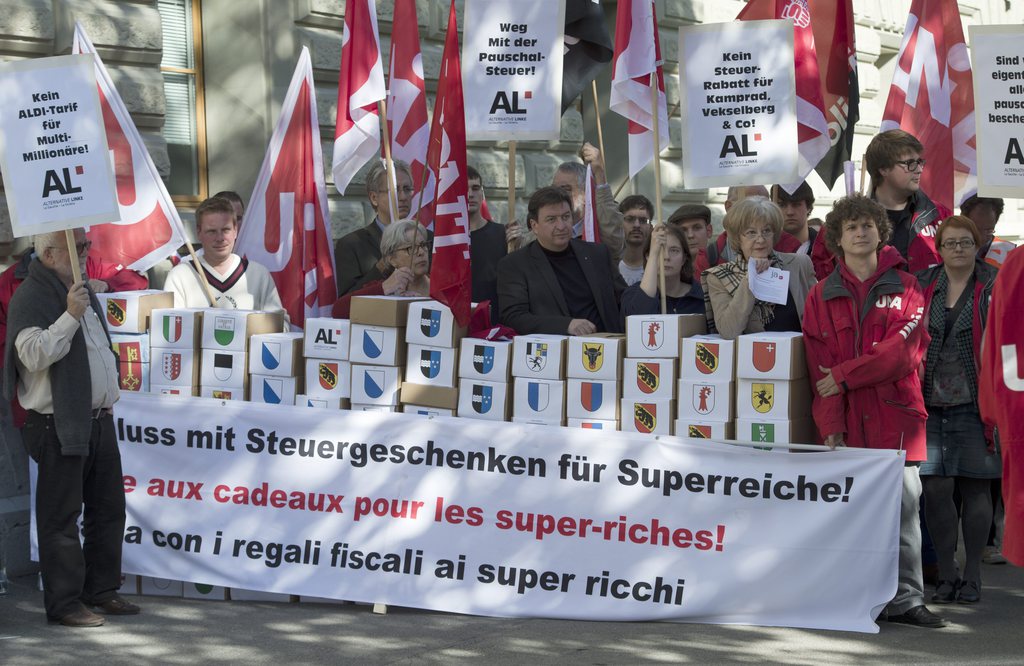French rocker prefers California to Gstaad

Ageing and iconic French singer Johnny Hallyday has chosen to live in the United States rather than in the Swiss resort of Gstaad where he owns a chalet and benefited from special tax breaks given to some wealthy foreigners.
Hallyday’s wife Laeticia confirmed on French radio on Friday that the whole family had been American residents since last year.
The singer was forced to state his place of residence after an investigation by Swiss public radio RTS showed that he spent only 15 days in Gstaad last year instead of the six months required under a special lump-sum taxation deal. RTS journalists tracked his whereabouts by following up his and his wife’s Instagram and Twitter accounts.
Hallyday himself tweeted that he was no longer a Swiss resident, calling the journalists stupid. Rumours had circulated in the past that the rocker was selling his chalet and leaving Switzerland, claims that were denied as recently as 2012.
@lili88120External link ces journalistes sont des imbéciles je suis résident US, et pas résident suisse,
— Johnny Hallyday (@JohnnySjh) January 16, 2014External linkFrench anger
French Socialist parliamentarian Yann Galut told RTS that the singer should come clean about his tax status, stating that Hallyday could have progressed from simply being a tax exile to becoming a tax evader, “something that is particularly scandalous and totally reprehensible.”
The French government has tightened its legislation against tax fraud and evasion recently, and more than 11,000 people have asked to regularise their fiscal status since last June according to Galut.
The French budget minister, Bernard Cazeneuve, another Socialist, refused on Friday to comment on the situation, stating simply that Hallyday should pay his taxes like any other citizen.
For the Swiss, there seems to be little to worry about. Centre-right Radical parliamentarian Isabelle Moret summed it up when she told RTS that it mattered little if a beneficiary of lump-sum taxation was in Switzerland or not. “When they pay their taxes, they’re helping the country,” she said.
A spokeswoman for canton Bern’s tax services told swissinfo.ch on Friday that Hallyday had moved to the United States and no longer paid Swiss income tax, but still owned his chalet in Gstaad.

Little surveillance
In theory, it is up to the cantons and municipalities to ensure that foreigners who benefit from special tax breaks fulfil the criteria set out in the agreement signed with the authorities.
However in practice this is not always the case, either because of a lack of resources or because the checks are not carried out properly, as a recent court case involving an absent Russian businessman revealed in canton Nidwalden.
Aldo Kropf, the mayor of Saanen, which includes Gstaad, said that there are around 180 people who have benefited from special taxation in his commune, but he admitted that it was impossible to say if they spent the required time living in Switzerland.
However, lump-sum taxation for wealthy foreigners is soon to be a matter of national debate, with voters to decide whether to abolish the system. A people’s initiative put forward by left of centre parties, calling for an end to “tax privileges for millionaires”, is currently being discussed in parliament.
The cabinet has proposed rejecting it, as has the Senate. The House of Representatives has yet to weigh in and there is no date set for the nationwide vote.
Five cantons have voted in recent years to abolish the system, while five others decided to maintain it but set stricter criteria for attribution.
Opponents of lump sum taxation say the preferential treatment violates the constitution, while supporters are concerned that Switzerland could lose its competitive edge on fiscal matters and worry that stricter regulation would lead to an exodus of wealthy taxpayers.
The system was first introduced in western Switzerland back in 1862 and became popular in the first half of the 20th century across the country, allowing the authorities to tax mainly non-Swiss, retirement-age residents who generate their income abroad.
The federal lump-sum tax, which only applies to foreign residents with an income of at least CHF400,000 ($440,000) annually, is established on the basis of seven times the rental value of the person’s property.

In compliance with the JTI standards
More: SWI swissinfo.ch certified by the Journalism Trust Initiative



You can find an overview of ongoing debates with our journalists here. Please join us!
If you want to start a conversation about a topic raised in this article or want to report factual errors, email us at english@swissinfo.ch.